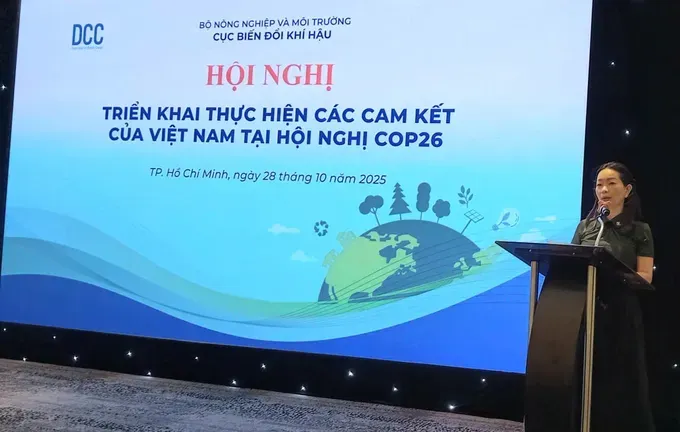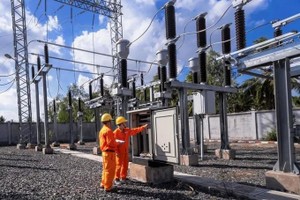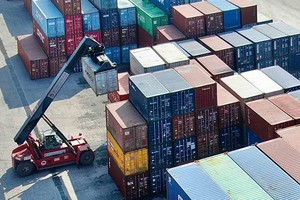
The Department of Climate Change under the Ministry of Agriculture and Environment organized a conference titled “Raising Awareness and Disseminating Knowledge on Climate Change Response and the Roadmap to Achieve Carbon Neutrality Commitments under COP26” in Ho Chi Minh City on October 28.
A representative from the Department of Climate Change stated that Vietnam has implemented numerous programs and projects to adapt to climate change, achieving concrete results in enhancing the resilience and adaptive capacity of natural, economic, and social systems. These efforts include disaster response, urban flood control, reinforcement of river and sea dikes, and reservoir safety; building climate-resilient communities; sustainable forest management and biodiversity conservation; ensuring food security; and safeguarding water resources.
According to a 2024 survey by the Department of Climate Change, Vietnam has implemented 1,107 climate change adaptation models based on nature, ecosystems, and communities. Of these, 285 are nature-based adaptation models, 62 are ecosystem-based, and 760 are community-based.
Notably, high-quality, low-emission rice farming models in the Mekong Delta have delivered clear economic and environmental benefits, helping reduce production costs by 8.2 percent to 24.2 percent. Profits increased by VND4 million (US$152) to VND7.6 million (US$289) per hectare compared with traditional farming methods.

Representatives from Suntory PepsiCo Vietnam Beverage Co., Ltd. (SPVB) stated that the company has implemented various measures to reduce greenhouse gas emissions. These include a project converting fossil fuels to biomass, which helps cut approximately 35,000 tons of CO₂ per year, and a rooftop solar power project with an estimated capacity of nearly 29,000 MWh per year, contributing to a reduction of around 19,000 tons of CO₂ annually.
The company has recommended that the government recognize the use of biomass as a greenhouse gas mitigation measure and that CO₂ emissions from biomass should not be counted toward a facility’s total greenhouse gas emissions.
A representative from the Department of Climate Change added that Vietnam has also received significant international support for climate change adaptation. From the Global Environment Facility, Vietnam has received 21 national projects worth US$101 million and 24 regional projects valued at US$185 million since 1998, focusing on environmental protection and climate change. From the Green Climate Fund, Vietnam has secured funding for six projects, covering both climate adaptation and greenhouse gas mitigation, with a total support of US$210 million. Regarding the Adaptation Fund, Vietnam has mobilized US$18.244 million and is under consideration for an additional US$71.467 million in funding.
Ms. Mai Kim Lien, Deputy Director of the Department of Climate Change under the Ministry of Agriculture and Environment, stated that Vietnam has participated in numerous international initiatives to implement climate change adaptation solutions. These include the Global Methane Pledge, the Glasgow Leaders’ Declaration on Forests and Land Use, and the Global Coal to Clean Power Transition Statement. Such commitments not only affirm Vietnam’s role as a responsible member of the international community but also create opportunities for collaboration to attract financial and technological resources for climate change response efforts.
According to Ms. Mai Kim Lien, the path to achieving net-zero emissions by 2050 will not be easy. Vietnam faces significant challenges, including high investment requirements, limited technology, and the need to further enhance management capacity, while public awareness and social action remain uneven. Therefore, implementing these commitments requires the joint effort and support of the entire political system, every citizen, and society as a whole.
According to the Ministry of Agriculture and Environment, Vietnam’s carbon credit market has also achieved significant progress. Under the Clean Development Mechanism (CDM), 258 projects and 13 programs have been registered, with 77 projects and 3 programs issued carbon credits, totaling 25,670,728 credits. Under the Joint Crediting Mechanism (JCM), 48 projects have been registered, with 817,247 carbon credits issued.
























